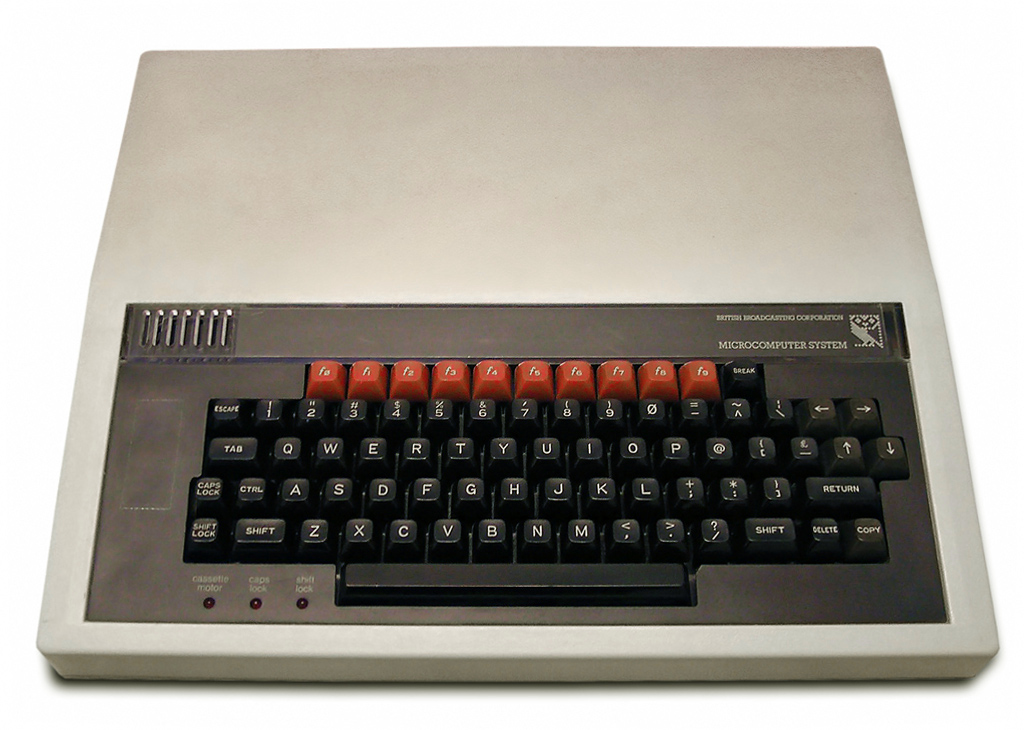

The BBC Computer was developed from Acorns planned next generation computer the PROTON specifically for the BBC computer literacy project, it won the contract after a competition with several other companies including Sinclair and Tangerine.
It owes much to their System Computer range being still based on the 6502 processor but a higher performance 2MHz variant which retained the capability of working with slower 1MHz devices on the bus. The BBC Computer came with a plethora of interfaces including serial, parallel (printer), sound (including speech), analogue (joysticks), cassette, floppy disk, networking capability (Econet), 1MHz bus (for external devices) and the new Tube. The user interface was via an ASCII keyboard and colour video which could display not only text at different resolutions but high resolution graphics.
The computer came with a powerful OS and built-in BASIC, a much enhanced version over the previous System Computer BASIC, which includes an inline assembler. The 64K limitation on memory was got around by being able to page up to sixteen 16K 'sideways' ROMs (only 4 onboard).
Initially the BBC Computer came in two versions the 'A' and 'B', the A came with 16MHz RAM whilst the B was fully populated with 32K. There were a series of enhanced machines including B+ variants and then the Master with increased memory capacities.
I'm not going to try and go into any more detail here as there is loads of information on BBC Computers elsewhere on the web.